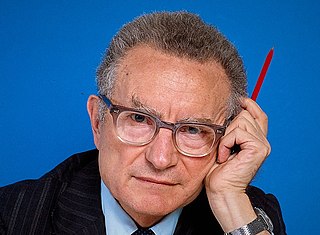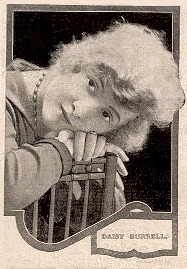This article needs additional citations for verification .(September 2020) |
Infelice is a silent film directed by L.C. MacBean e Fred Paul and released in the UK on 30 September 1915. The script is based on a novel by Augusta J. Evans-Wilson.
This article needs additional citations for verification .(September 2020) |
Infelice is a silent film directed by L.C. MacBean e Fred Paul and released in the UK on 30 September 1915. The script is based on a novel by Augusta J. Evans-Wilson.
A general forces his married son to leave his wife for an heiress but he returns to her when she acts in the play of her life.
The film was produced by the British company G.B. Samuelson Productions.
Peggy Hyland as Minnie Perle, Fred Paul as Peleg Peterson, Bertram Burleigh as Cuthbert Lawrence, Queenie Thomas as Regina, and Richard Vaughan as General Lawrence.
Infelice was a financial success for G.B. Samuelson Productions. It was shown in 681 cinemas [1]
The year 1937 in film involved some significant events, including the Walt Disney production of the first American full-length animated film, Snow White and the Seven Dwarfs.
The following is an overview of 1936 in film, including significant events, a list of films released and notable births and deaths.
The following is an overview of 1935 in film, including significant events, a list of films released and notable births and deaths. The cinema releases of 1935 were highly representative of the early Golden Age period of Hollywood. This period was punctuated by performances from Clark Gable, Shirley Temple, Fred Astaire and Ginger Rogers, and the first teaming of Jeanette MacDonald and Nelson Eddy. A significant number of productions also originated in the UK film industry.

Paul Anthony Samuelson was an American economist who was the first American to win the Nobel Memorial Prize in Economic Sciences. When awarding the prize in 1970, the Swedish Royal Academies stated that he "has done more than any other contemporary economist to raise the level of scientific analysis in economic theory".

Mikael Gustaf Lennart Samuelson is a Swedish baritone opera singer, actor, and composer.
George Berthold Samuelson was a director and film producer.

Peggy Hyland was an English silent film actress who after a brief period on the stage had a successful career as a silent film actress, appearing in at least 40 films in Great Britain and the United States between 1914 and 1925. In 1925 she returned to Britain after making her last film following which she lived a life of obscurity.

William George Barker was a British film producer, director, cinematographer, and entrepreneur who took film-making in Britain from a low budget form of novel entertainment to the heights of lavishly-produced epics that were matched only by Hollywood for quality and style.
A Study in Scarlet is a 1914 British silent drama film directed by George Pearson and starring James Bragington, making him the first English actor to portray Holmes on film. It is based on the Sir Arthur Conan Doyle 1887 novel of the same name and is considered to be lost. An American film of the same name was released in the U.S. on the following day, 29 December 1914. As of 2014, the film is missing from the BFI National Archive, and is listed as one of the British Film Institute's "75 Most Wanted" lost films.
Walter Summers (1892–1973) was a British film director and screenwriter.
The Crucifix is a 1934 British drama film directed by G.B. Samuelson and starring Sydney Fairbrother, Nancy Price and Farren Soutar. It was produced as a quota quickie for release by Universal Pictures.
Fred Paul (1880–1967) was a Swiss-born British actor and film director. Paul was born in Lausanne in 1880 but moved to Britain at a young age. He was a prolific actor and director in the 1910s and 1920s, but his career dramatically declined with the arrival of sound films.

Bertram Burleigh was a British actor of the silent era. After early theatrical roles, Burleigh performed in leading roles in a series of British films from 1914 to 1927. He retired from acting in the late 1920s, after which he managed cinemas and hotels in the West Midlands area.
The Forger may refer to:
G. B. Samuelson Productions was a British film production company which operated in the silent film and early sound film era of films during the period of 1914 to 1933, during which time the company produced around 70 films. The company was run by G.B. Samuelson, who also directed a number of films.

Convict 99 is a British silent motion picture of 1919 produced and directed by G. B. Samuelson and starring Daisy Burrell, C. M. Hallard, Wee Georgie Wood, and Wyndham Guise. It was written by Robert Leighton and Marie Connor Leighton.

Sixty Years a Queen is a 1913 British silent historical film directed by Bert Haldane and starring Blanche Forsythe, Louie Henri and Fred Paul.
The Callbox Mystery is a 1932 British crime film directed by G.B. Samuelson and starring Warwick Ward, Harold French and Wendy Barrie. It was made at Cricklewood Studios as a quota quickie.
Julian Wylie, originally Julian Ulrich Samuelson Metzenberg, was a British theatrical agent and producer. He began as an accountant and took an interest in entertainment through his brothers, Lauri Wylie and G. B. Samuelson. About 1910, he became the business manager and agent of David Devant, an illusionist, then took on other clients, and formed a partnership with James W. Tate. By the end of his life he was known as the 'King of Pantomime'.
Threads is a 1932 British drama film directed by G.B. Samuelson and starring Lawrence Anderson, Dorothy Fane and Wendy Barrie. It was shot at Cricklewood Studios near London and was released by United Artists.